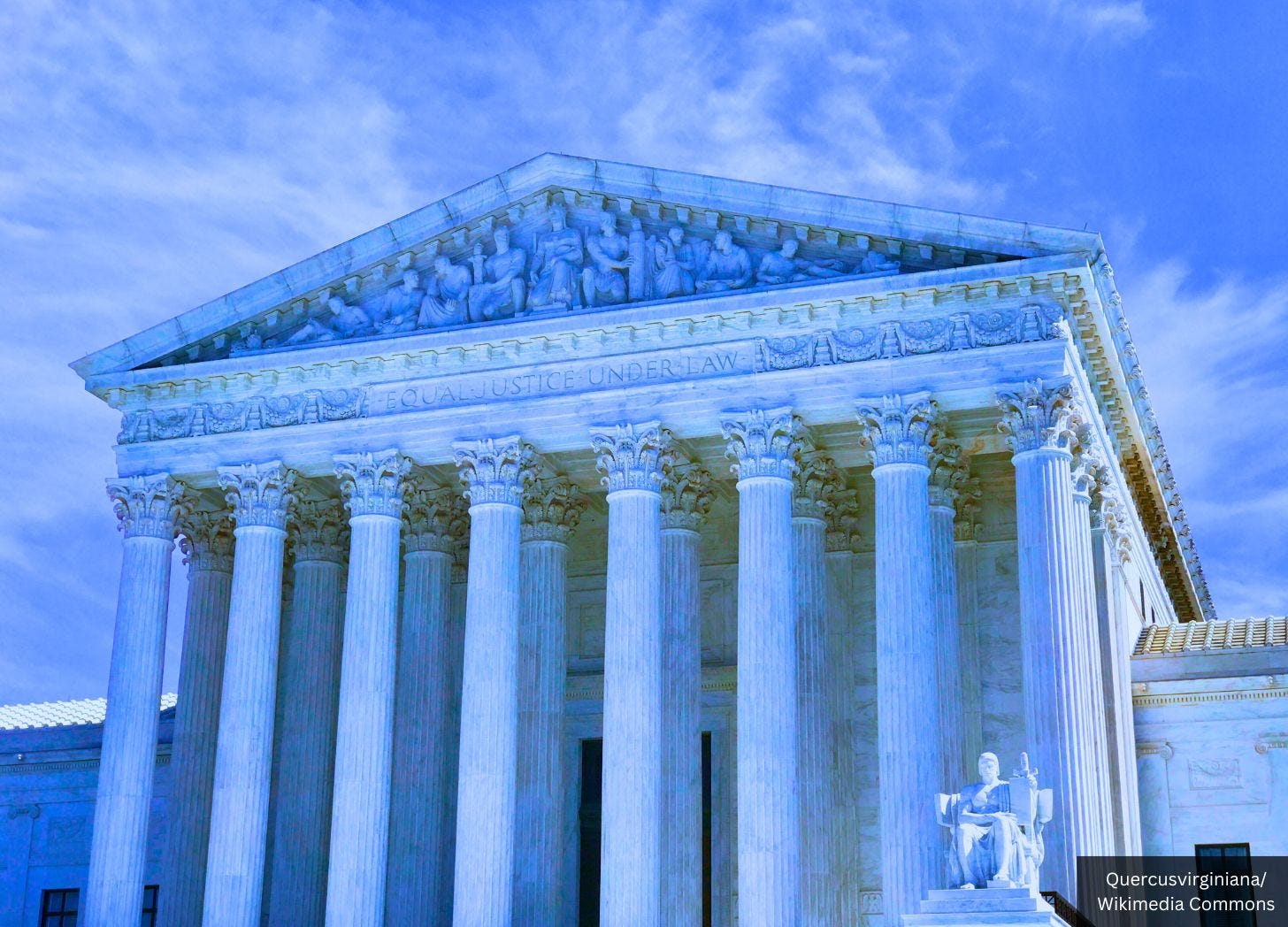Will the Supreme Court Save Us from Bird Flu Pandemic Tyranny?
Recent U.S. Supreme Court rulings may rein in a heavy-handed government response to bird flu.
Four recent decisions from the U.S. Supreme Court may rein in the government’s enforcement and creation of regulations in response to the apparently incoming bird flu pandemic.
Follow Jon Fleetwood: Instagram @realjonfleetwood / Twitter @JonMFleetwood / Facebook @realjonfleetwood
The decisions will no doubt be lauded by those critical of the U.S. government’s implementation of lockdowns and mask- and vaccine mandates during the COVID-19 pandemic.
The Centers for Disease Control and Prevention (CDC) currently has the power to issue regulations related to public health, including mask-wearing for workers and isolation and quarantine measures.
The Department of Agriculture (USDA) manages the safety of workers and animals on farms.
The Food and Drug Administration (FDA) regulates much of the U.S. food supply.
The high court’s new decisions could affect testing, surveillance, and vaccine requirements recommended by these agencies, and even open them up to increased legal accountability.
They come as the World Health Organization (WHO) on Monday launched a new project aiming to accelerate the development and accessibility of human avian influenza (H5N1) messenger RNA (mRNA) vaccine candidates for manufacturers.
The Guardian outlined the four decisions:
In the Loper Bright decision, the supreme court overturned something known as Chevron deference, where judges prioritize federal agencies’ interpretations of ambiguous language in federal laws – opening up uncertainty in agencies’ ability to make or enforce rules not explicitly enshrined in law.
Another decision, Corner Post, changed the interpretation of the statute of limitations for bringing lawsuits against regulations, from within six years of the introducing a regulation to within six years of the regulations affecting someone – which means rules that seemed long-settled could now be newly challenged.
The supreme court also temporarily blocked the Good Neighbors Plan, which would have affected air pollution across state lines, because the justices believed one public comment was not fully addressed by the agency – setting a precedent of more detailed public comment responses to proposed rules.
And in recent years, justices have also relied on the major questions doctrine, which says agencies must have clear congressional authority to carry out any regulations of national importance.
Commenting on the significance of the Loper Bright decision, former Texas Representative Ron Paul (R) explained in a recent publication how the Chevon defense had given federal agencies “almost unchecked authority to determine the scope of their authority.”
“The agencies then enforce their interpretations of their powers via regulations,” Paul writes. “This combination of legislative and executive power violates the principle of separation of powers.”
Chevron has been envoked in several federal cases involving various emergency laws.
Erica White, a fellow at Arizona State University’s Sandra Day O’Connor College of Law, points out how the Chevron doctrine has been invoked in lawsuits bringing challenges to drug manufacturer’s product liability protections.
Chevron was also applied to suits regarding federal funds given to states for COVID programs and immigration and jurisdiction issues.
With Chevron gone, agencies “may be wary of acting, even during an emergency, because their actions could be challenged, and they would no longer be able to cite Chevron in defense of their policy choices,” according to White.
RealClearPolicy’s Marc Wheat characterizes Chevron’s overturning as “a major blow to the bureaucratic behemoth of the administrative state.”
“The 1984 Chevron decision had long directed courts to defer to the administrative state’s interpretation of the law, granting enormous powers, including the judicial branch’s core power of interpreting law, to an unelected, entrenched bureaucracy. As of this summer, this wrong has finally been set right,” writes Wheat. “The decision restores critical authorities to their constitutionally mandated branches of government, ensuring accountability to the American people.”
The legal issue has “real world consequences for Americans” because Chevron “took power away from citizens, rendering them nearly defenseless against the tyranny of the administrative state,” according to Wheat. “America’s Founders would be horrified by the cascading effects of this doctrine.”
The RealClearPolicy writer argues that Chevron had enabled the unchecked expansion of the administrative state and represented the federal bureaucracy’s illegitimate growth.
“It is clear that a ballooning and unaccountable administrative state throws a wrench into the constitutional balance of powers essential to the health of our nation,” he writes. “The Constitution creates a system of government comprised of three coequal branches, each of which can balance the power of the other two. In overturning Chevron, the Court has appropriately checked a degree of the administrative state’s power.”
Wheat calls on Congress to act: “Now, Congress must summon the courage to legislate in a way that prevents the further illegitimate expansion of federal bureaucracy. At the same time, the Supreme Court should continue to check the expansion of the administrative state at the expense of the constitutional authorities of the president.”
“The Founders knew that the liberty of the American people depends on limiting government power,” Wheat concludes. “The administrative state operates as a fourth branch of government. That problem will not begin to be solved until it is made accountable to the chief executive. Ensuring the God-given rights of the citizens of this country demands reining in the federal bureaucracy once and for all and restoring an equal balance of power among three branches of government.”
Follow Jon Fleetwood: Instagram @realjonfleetwood / Twitter @JonMFleetwood / Facebook @realjonfleetwood





"rein in", perhaps?
Another picky point: aren't the FDA's pronouncements regarding Avian Flu, & regarding COVID STILL, merely EUA s? IOW, they're only authorized for EMERGENCY USE, which means that everyone is free to accept or reject them as they see fit, & nobody is allowed (legally) to FORCE anyone else to comply?